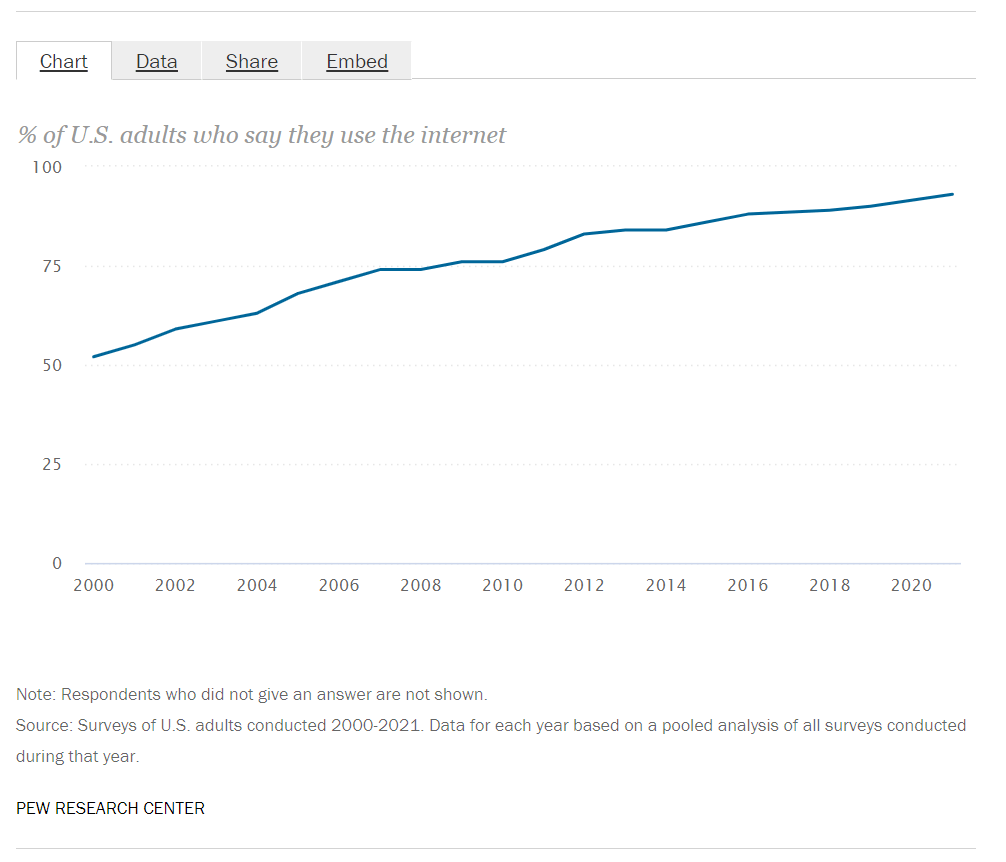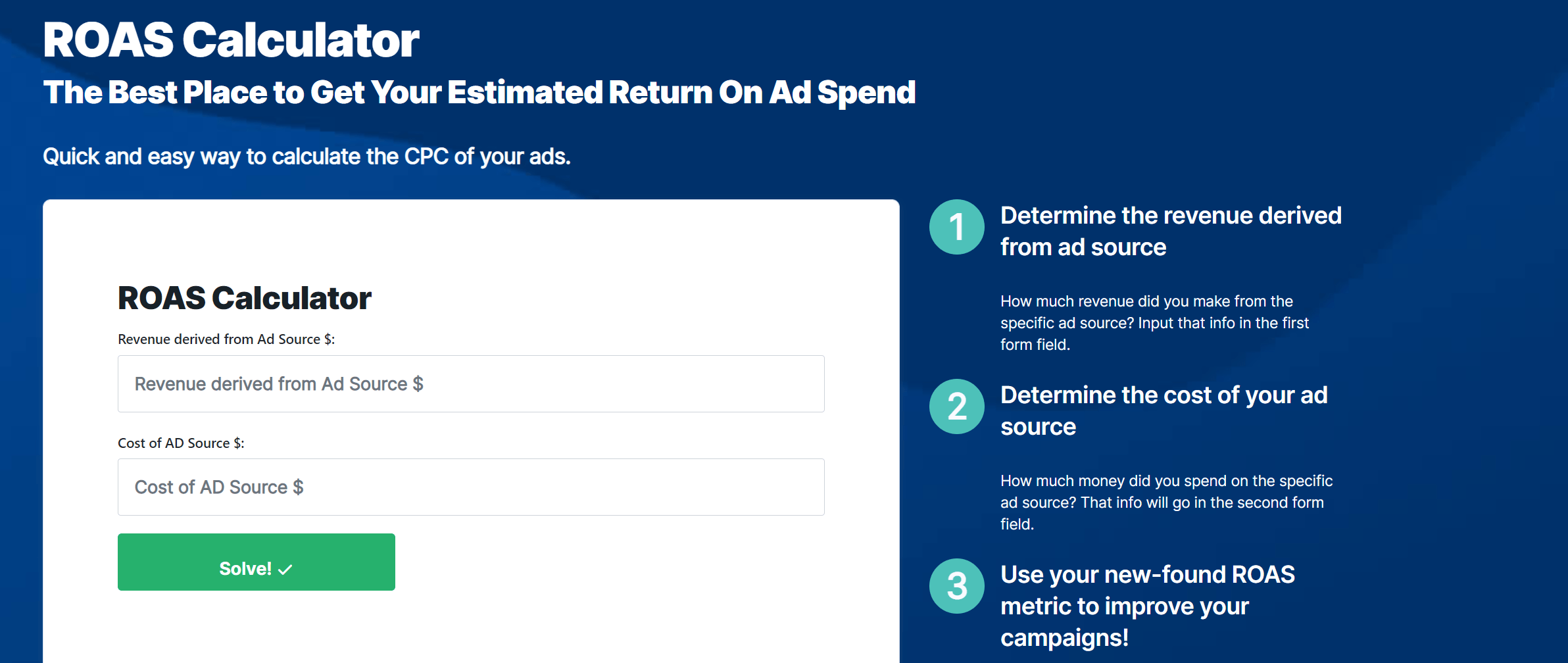-
 7 min. read
7 min. read
-
 Jessica Bonacci
Jessica Bonacci Content Writer
Content Writer
- Jessica is a Google Analytics certified Digital Video Analyst at WebFX. She has created over 100 videos for the WebFX YouTube channel (youtube.com/webfx) in the last two years. Jessica specializes in video marketing and also loves content marketing, SEO, social media marketing, and many other aspects of digital marketing. When she’s not creating videos, Jessica enjoys listening to music, reading, writing, and watching movies.
In this video, Will from the WebFX Internet Marketing team will debunk seven myths about marketing online.
Transcript: Digital marketing myths are like balloons. They’re meant to be busted. I have seven myths about marketing that I’m going to debunk in this video. Don’t worry, I ran out of balloons to pop. Let’s jump right in.
Myth #1. “X” marketing is dead.
I’m sure you’ve seen clickbait headlines that say something along the lines of: Extra, extra! Read all about it!
- SEO is dead
- Email marketing is dead
Stop writing those obituaries. Nothing has died. It’s just different. And when I say nothing has died, I’m talking about digital marketing, not traditional marketing strategies like TV or radio advertising. Think of how much the Internet has changed in a matter of 20 years.
In the early 2000s, Pew Research Center reported just over 50% of adults in the U.S. used the Internet. In 2021, that number has grown to 93%.  I even remember a time — not too long ago — when Wi-Fi was a household luxury, not a necessity. More people using the Internet means more businesses are adding digital marketing to their growth strategies.
I even remember a time — not too long ago — when Wi-Fi was a household luxury, not a necessity. More people using the Internet means more businesses are adding digital marketing to their growth strategies.
As a result, there is a lot of competition to reach your target audience with marketing. And the platforms we use to market our businesses have gotten smarter and have continually adapted to their digital environments. For instance, Google has gotten exponentially better at detecting spammy websites and marketing tactics since the early 2000s. That means your SEO requires more effort and more planning. In fact, all of your digital marketing campaigns require effort and planning to be successful.
It’s certainly possible that a random social media post can go viral, but it’s not very likely. Anyone who says “X” marketing is dead probably just isn’t doing it right.
Myth #2. You need technical skills to do digital marketing
Okay, being able to read, write, and edit code does help you with your digital marketing efforts. But you can still do a lot without that knowledge. I would bet that the majority of people who use social media don’t know how to code. And so many website builders and tools exist to help you add content to your website quickly and easily. Want to create videos?
Use the phone that’s in your pocket 24/7 and upload to YouTube. Email marketing? Choose from the large number of email management tools to design and send newsletters. All you really need to start marketing your business online are some writing skills and creativity.
You can build from there.
Myth #3. SEO is a one-time effort
You can’t do SEO once and call it a day. We’ve made several videos where we tell you that SEO is an ongoing marketing strategy. And we aren’t kidding. Search engines constantly change. Your competitors are always updating their websites. A page that’s at the top of the search results can easily be bumped down by another page that was well-optimized. If you aren’t paying attention, you’ll lose all of that momentum you built up from your initial SEO and see your results go down the drain.
Myth #4. “X” word count guarantees good rankings
Spending hours and hours on an in-depth, informational page can pay off in terms of SEO success. But creating a lengthy page of content is not necessarily a guarantee it will be at the top of the search results. There are certainly studies that show a correlation between higher word counts and higher rankings, “higher” meaning about 1500 words. But two things:
- Many factors affect where your website will rank in search results.
- Plenty of first-page results are shorter than 1500 words.
If you add more to your content just to hit that target word count, and none of what you add is helpful, people are going to notice. And if people don’t like your content, that’s going to tell search engines that it shouldn’t be at the top of the results. On the other hand, if your concise page is helpful and answers people’s questions, it will probably perform well. Probably. There’s really no guarantee you’ll have a number one page.
Myth #5. Digital marketing is expensive
Sure, digital marketing requires an investment to drive results. But you can do a lot within your budget. With digital marketing, and advertising specifically, most platforms allow you to set a budget and place bids within that budget. If you aren’t happy with the results you’re seeing, you can easily make adjustments to how much you’re spending, or use AI to maximize your budget for a certain goal. And many other aspects of digital marketing are either free or come at a low cost. Partnering with an agency can certainly help take some work off of your plate, freeing up your busy schedule and saving you the cost of hiring someone full-time.
I might be biased, but it’s an investment worth investigating. Most agencies offer flexible plans that work with your budget, and you can easily add more digital marketing services to your plan if you realize you need them in the future.
Myth #6. It’s impossible to track digital marketing ROI
Yeah, we made a video on how to calculate ROI for your campaigns, so we can’t even begin to tell you how wrong this myth is. Here at WebFX, we’ve also developed our MarketingCloudFX platform to make tracking ROI easy for our clients. Digital marketing is all about data. Once you decide on a goal, like increasing purchases or traffic to your website, you can measure that against how much you’re spending on your campaigns.  If you’re working with an agency, you’ll factor in how much you’re paying their team to get results.
If you’re working with an agency, you’ll factor in how much you’re paying their team to get results.
If you’re handling your marketing on your own, you’ll have to factor in the cost of your time, tools, and anything else you’ve invested for your strategy. You have so much data at your fingertips that calculating ROI is easier than ever before.
Myth #7. High traffic equals a successful campaign
Yay! Your marketing efforts are bringing a lot of people to your website. Cool. But are those people becoming leads and customers, or are they leaving your website without a trace? If your goal is just to have people on your website, then I guess you can say high traffic equals success. But I’d say this isn’t the case for most businesses. You want people to become customers, don’t you?
Traffic does not equal customers. Getting people to your website is only half the battle. The other half is getting them to sign up for your emails, getting them to download a guide, or getting them to make a purchase on your website. Which scenario would you prefer?
- 1000 people visit your website and five make a purchase
- 500 people visit your website and 10 make a purchase
Even if those 10 people are just giving you their emails, you can use that information to move them through the buying process with your content. Traffic is great, but conversions generate revenue for your business. The next time someone repeats one of these seven digital marketing myths, show them this video or send them to the text transcript on our blog. We’ve got a bone to pick with them.
We hope we’ve helped identify the different misconceptions about marketing.
If you enjoyed this video, take a moment to subscribe to our YouTube channel and Revenue Weekly, our email newsletter, for the latest digital marketing content. Thanks for watching!
-
 Jessica is a Google Analytics certified Digital Video Analyst at WebFX. She has created over 100 videos for the WebFX YouTube channel (youtube.com/webfx) in the last two years. Jessica specializes in video marketing and also loves content marketing, SEO, social media marketing, and many other aspects of digital marketing. When she’s not creating videos, Jessica enjoys listening to music, reading, writing, and watching movies.
Jessica is a Google Analytics certified Digital Video Analyst at WebFX. She has created over 100 videos for the WebFX YouTube channel (youtube.com/webfx) in the last two years. Jessica specializes in video marketing and also loves content marketing, SEO, social media marketing, and many other aspects of digital marketing. When she’s not creating videos, Jessica enjoys listening to music, reading, writing, and watching movies. -

WebFX is a full-service marketing agency with 1,100+ client reviews and a 4.9-star rating on Clutch! Find out how our expert team and revenue-accelerating tech can drive results for you! Learn more
Try our free Marketing Calculator
Craft a tailored online marketing strategy! Utilize our free Internet marketing calculator for a custom plan based on your location, reach, timeframe, and budget.
Plan Your Marketing Budget
Table of Contents
- Myth #1. “X” Marketing is Dead.
- Myth #2. You Need Technical Skills to Do Digital Marketing
- Myth #3. SEO is a One-time Effort
- Myth #4. “X” Word Count Guarantees Good Rankings
- Myth #5. Digital Marketing is Expensive
- Myth #6. It’s Impossible to Track Digital Marketing ROI
- Myth #7. High Traffic Equals a Successful Campaign
- We Hope We’ve Helped Identify the Different Misconceptions About Marketing.

Maximize Your Marketing ROI
Claim your free eBook packed with proven strategies to boost your marketing efforts.
Get the GuideTry our free Marketing Calculator
Craft a tailored online marketing strategy! Utilize our free Internet marketing calculator for a custom plan based on your location, reach, timeframe, and budget.
Plan Your Marketing Budget





